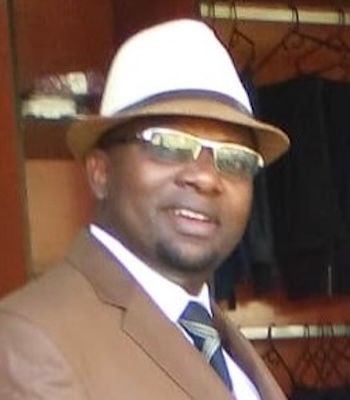Obvious Vengeyi

THUMBNAIL:Professor Obvious Vengeyi’s arrest during a peaceful protest has sparked a national reckoning over academic freedoms in Zimbabwe. From biblical scholarship to bold activism, his journey reveals the cost—and courage—of speaking truth to power in a system that silences dissent. “We cannot teach freedom while living in bondage."
Professor Obvious Vengeyi: Zimbabwean Scholar Becomes Symbol of Academic Freedom Fight
HARARE, ZIMBABWE – Professor Obvious Vengeyi, a Senior Lecturer at the University of Zimbabwe, has emerged as a powerful symbol in the national struggle for academic freedom and staff dignity, following his arrest during a peaceful protest over deteriorating working conditions. His career reflects a seamless blend of rigorous scholarship and fearless advocacy against institutional injustice.
Academic Excellence
Professor Vengeyi is a leading scholar in the Department of Religious Studies, Classics and Philosophy at the University of Zimbabwe. He holds a PhD in Old Testament Studies from Universität Bayreuth, Germany (2012), and earlier earned Master’s and Bachelor’s degrees in Religious Studies, along with a Diploma in Religious Studies from the University of Zimbabwe.
His research spans Land and social justice in biblical and African contexts, debt slavery and domestic workers in biblical interpretation, African leadership through biblical lenses, and Postcolonial biblical hermeneutics.
He teaches both undergraduate and postgraduate courses, including Origins of Prophecy and Israelite Pre-Canonical Prophets, Colonial/Postcolonial Interpretations of the Old Testament, and Ancient Near Eastern Cultures and Civilisations.
Arrest and Protest
On April 15, 2025, Professor Vengeyi, the current spokesperson of the Association of Unversity Teachers (AUT) was arrested alongside fellow lecturers Dr Desmond Ndedzu and Group Captain Boncase Mwakorera during a peaceful demonstration at the University of Zimbabwe’s main entrance. The trio was charged with disorderly conduct but their lawyers argued they were exercising their constitutional right to protest. The protest, organized by the Association of University Teachers (AUT), sought to highlight the drastic decline in academic staff salaries—from US$2,250 per month in 2018 to a paltry US$230 plus a local currency component worth under US$200 in 2025, an effective salary cut of 87%.
Speaking after his release, Professor Vengeyi stated:
“We were not criminals. We were educators demanding dignity. The arrest was meant to intimidate us, but it only strengthened our resolve. We cannot teach freedom while living in bondage.”
The protest marked a turning point in the long-standing standoff between AUT and the university administration led by Vice-Chancellor Professor Paul Mapfumo, whose tenure has been marred by allegations of suppressing academic freedom and ignoring staff welfare.
Legal Vindication
Although the lecturers were initially fined US$15 each for “disorderly conduct,” their legal team from Zimbabwe Lawyers for Human Rights challenged the convictions. On May 15, 2025, Magistrate Isheanesu Matova overturned the fines and ordered the Zimbabwe Republic Police to refund the payments, affirming the lecturers’ constitutional right to peaceful protest.
Reflecting on the ruling, Professor Vengeyi remained humble and remarked:
“This was not just a legal victory—it was a moral one. It reaffirmed that the classroom must remain a space of truth, not fear. We will continue to speak, teach, and protest until justice is restored. I don’t see myself as a hero. I was doing what anyone could have done. I am really a nobody when it comes to real-life struggles.”
A Scholar-Activist Legacy
Professor Vengeyi’s ordeal has sparked nationwide dialogue on the role of universities as bastions of critical thought and dissent. His courage has inspired fellow academics, students, and civil society to demand accountability and respect for intellectual labour.
He is now widely regarded as a scholar-activist, someone who not only interprets prophetic texts but lives their message—calling out injustice, defending the vulnerable, and challenging power with conviction.
“Academic freedom is not a privilege—it is a right. And rights must be defended, even when the cost is high,” he said.
